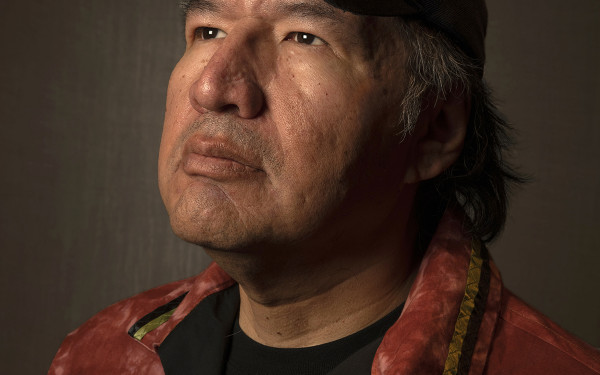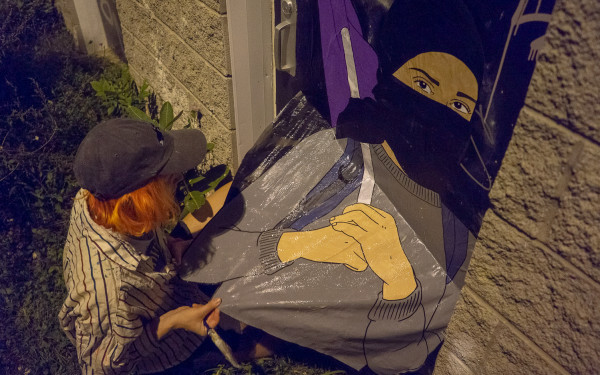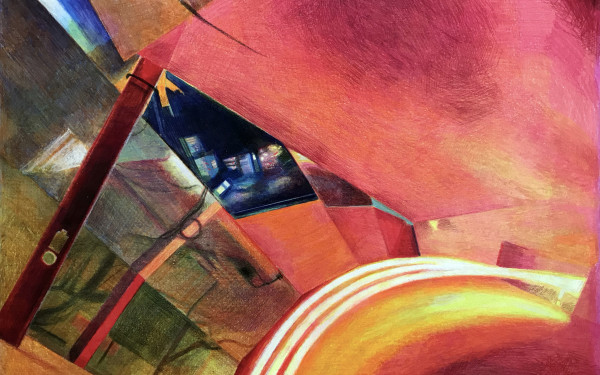Activism Through Art by an Angry Feminist Whale
Artist Moule Makes Waves by Shattering Stereotypes and Educating About the Environment
Inspired by the ecological disaster unfolding across the planet and driven by empowering underrepresented people, Moule, a painter, illustrator, and graphic designer, creates art that makes a statement.
Dressed in a magenta blazer and wearing bright pink lipstick, she is as colourful and spirited as one of her illustrations.
Moule explained that she uses art as a medium to channel her will and passion into fighting for causes. “I’m very often motivated by […] breaking the stereotypes, and there’s always an undermining bit of feminist activism,” she explained.
She is equally fuelled by her love of nature. She was raised in Apt, a small, rural town in the Provence region of France, and has always felt a strong connection to the earth.
“[Growing up], no one was scared of leaving us free in the forest for days,” recalled Moule. “[T]he first time I took the train I think I was 17 or 18, [so] I wasn’t close to cities till a lot later in life.”
Though she grew up near the forest, she explained she has always felt a much stronger emotional connection to the ocean. The mystery and beauty that exists beneath the water’s surface intrigues Moule.
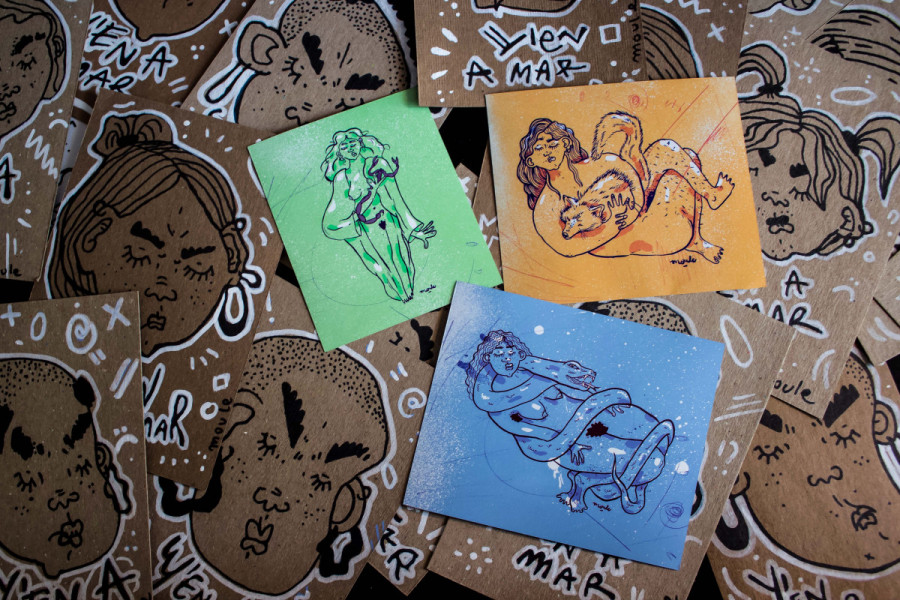
“If ever we could see what was happening under the sea [from] atop the earth, we would lose our shit,” proclaimed Moule, whose artist name is a direct tribute to her fascination with water.
The name “Moule” is also a clever play on words. “‘Moule,’ in French, means a mussel, so it comes from the sea,” she explained. “It also means the external part of a vagina, and […] ‘woman’ in slang from Marseille.” However, Moule’s spirit animal is, without a doubt, a whale—an “angry feminist whale,” as she puts it.
Moule explained that names of fat mammals are often used by children in France as insults. She’s trying to reappropriate that name-calling through her art. She uses her frustration with rigid beauty standards as creative fuel, depicting people who don’t fit inside society’s molds. Moule is angry and proud of it, she said.
“Moule’s art […] is really important in our current social media time where we see a lot of very stereotypical representations of […] what women are supposed to look like,” said musician, collaborator, and friend Maryse Bernard. “Her art, I think, makes me and a lot of other women, and people, feel like it’s okay to look a little bit different.”
Moule’s work portrays people of all shapes and sizes in full curvy, hairy, unclothed glory. Her illustrations are simultaneously whimsical and empowering, said Bernard. Moule explained that she tries to spread images of women, non-binary, and trans people that are not portrayed in the media.
Her art, she explained, is an outlet for frustrations that stem from society’s preconceived standards.

Moule said she started out drawing and painting mermaids but was eventually dissuaded by their fantastical, childish appeal. She found herself wanting to create something more serious and meaningful. “[A]s soon as I hear a whale being washed up on the seas with a large amount of plastic in her, I just think we need to try and do something [about the environment],” she said. “So I represent a lot of whales in my illustrations, and water animals.”
Her adoration for these large sea mammals is evident in her studio. Three purple whales—a painting done by a good friend—hover watchfully over Moule’s creative space. The space is made up of a modest desk framed by cascading houseplants and shelves displaying mason jars, paint-crusted brushes, and, of course, stuffed whales.
It was in Quebec that Moule was able to see whales for the first time in her life. During her time in Montreal, Moule has gotten to travel out of the city to Tadoussac and Gaspésie; these are trips that have been monumental for her work. “I think I kind of get a sense of what’s important when I get out of the city. It’s as if I [am] touching base with the human core,” she said.
After falling in love with Montreal while visiting a friend, Moule decided to make the move from London, where she was working as a graphic designer.
“I’m very often motivated by […] breaking the stereotypes, and there’s always an undermining bit of feminist
activism.” — Moule
It was the city’s diverse and accepting art scene that drew her in. “I think there’s an open-mindedness in the arts [in Montreal] that is different from other countries,” she explained. “I’m less scared saying what I think here than in any other country where I’ve lived.”
She explained that in Montreal, the rich and poor art scenes seem to merge. The result is a supportive atmosphere that welcomes and encourages both young freelancers and established artists.
Moule explained that she has become friends with some well-known artists in Montreal. These artists regularly host potlucks where they invite all their fellow artist friends and guests. The result is a creative gathering the likes of which Moule claimed she has never encountered before.
However, putting yourself out there can be daunting at first, especially for more introverted people, explained Moule. She recalled forcing herself to go to events and to be more social in order to meet new artists and find work.
Using Instagram to her advantage, Moule was also able to connect with many interesting and inspiring people through the simple act of direct messaging. “I’ve had so many sketch sessions and drawing sessions and collaborations. People are willing to share moments of pure art and creation in Montreal. It’s quite amazing,” she said.
Though Montreal is a bustling hub for artists, there is a lack of paid work in well-established enterprises, explained Moule.
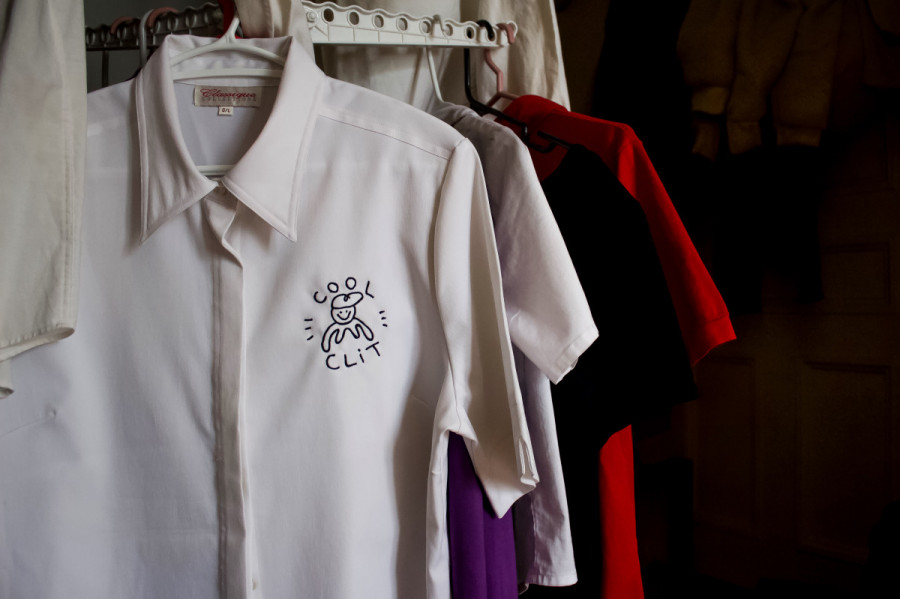
“I think that people just don’t trust the arts enough, and they don’t invest enough in it,” said Moule. She recalled getting her first gigs in the city through word of mouth and friends of friends.
“The more you talk [about] and spread the love you have for your art, the more people are going to believe in it and spread it around them.”
Since arriving in the city nearly two years ago, Moule has participated in a multitude of projects through Collectif Cousines, Art Cible, Canettes de Ruelle, and walls on the island of Montreal designated for legal graffiti.
Moule describes Collectif Cousines as “a lot of people meeting up, trying to create a space, [and] trying to find solutions on how to represent women in diversity and culture and arts in Montreal.”
One such project was a live painting performance during one of Bernard and Backxwash’s concerts.
“I thought it was beautiful that she could visually represent sound and be inspired on the spot,” said Bernard, who performs under the stage name Maryze and writes about feminist and environmental themes. “I find that her art and my music go well together and she understands the message I’m going for.”
Moule has also exhibited work at Marc Gosselin gallery and Atelier Galerie 2112. Antoine Giasson, artist and owner of Atelier Galerie 2112, first came across Moule’s work during one of the gallery’s monthly artist callouts.
“Her work is feminism, but at the same time it’s funny, so it brings out the feminist issue in a positive way that’s more approachable,” explained Giasson.
One of the legal walls where Moule has painted is the Mur Legal Rouen. Moule explained she loves the collaboration and experimentation such murals encourage. “[Montreal is] a city that lives under the snow for seven or eight months, so in the summer everyone is willing to be outside and paint on walls. It’s like a constant motivation.”
In the warmer months, catch Moule atop a ladder, paintbrush in hand—and keep an eye out for her stickers, paintings, clothing, and illustrations in art galleries and throughout Montreal.




